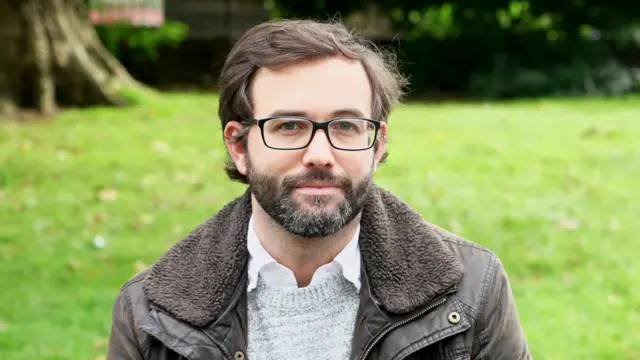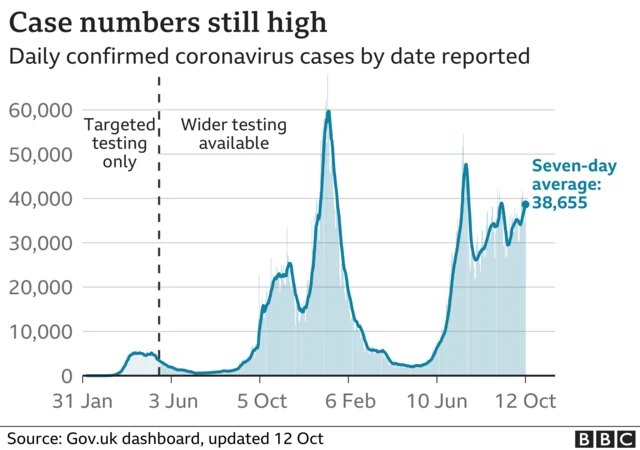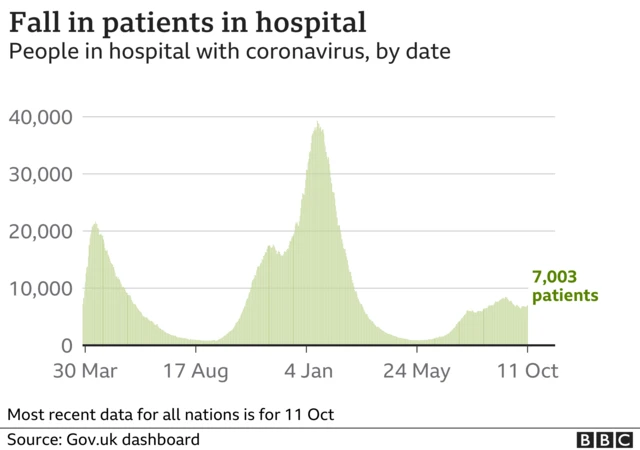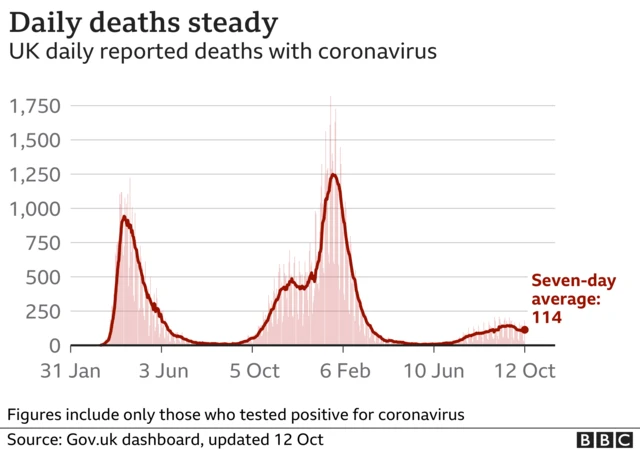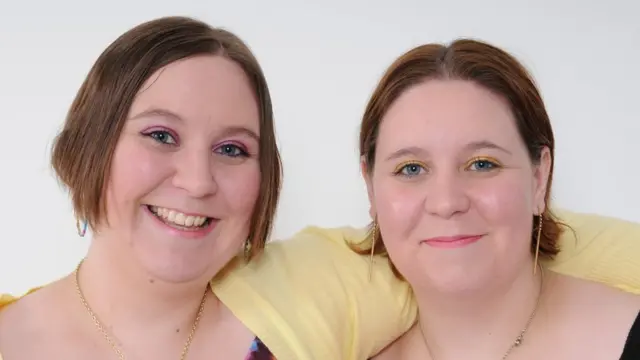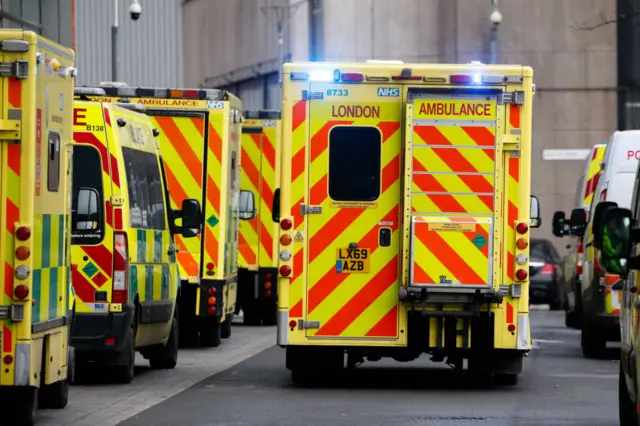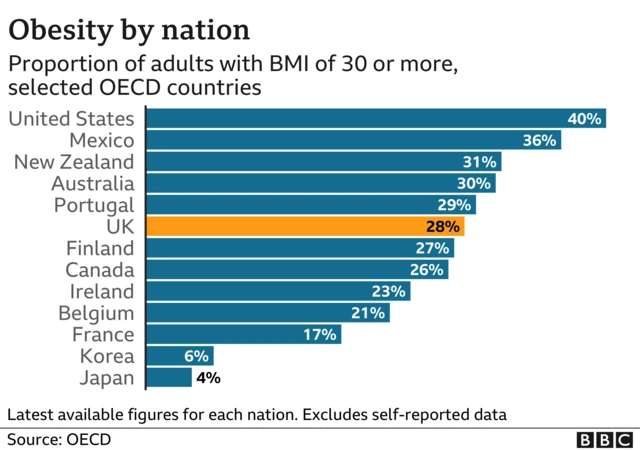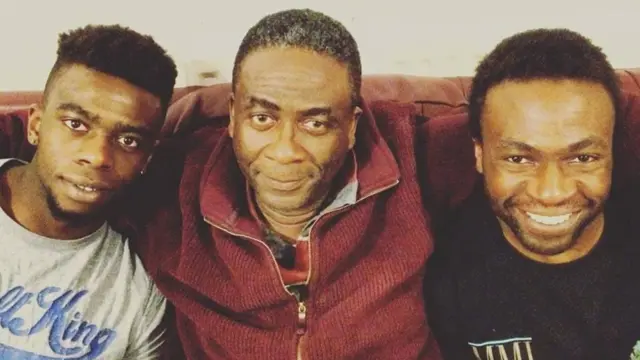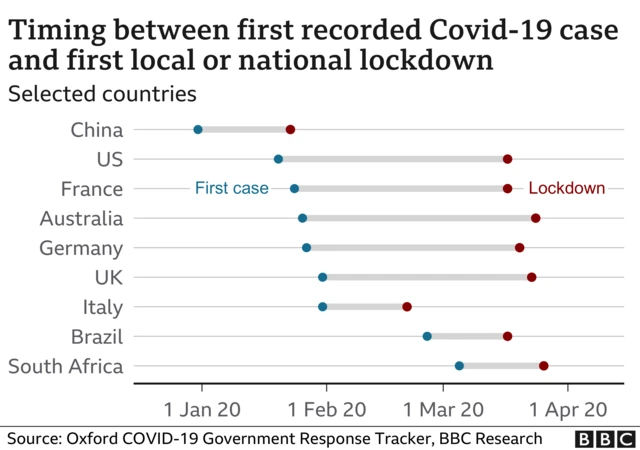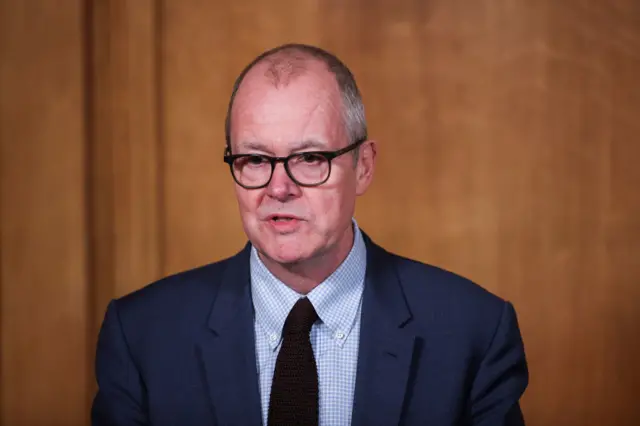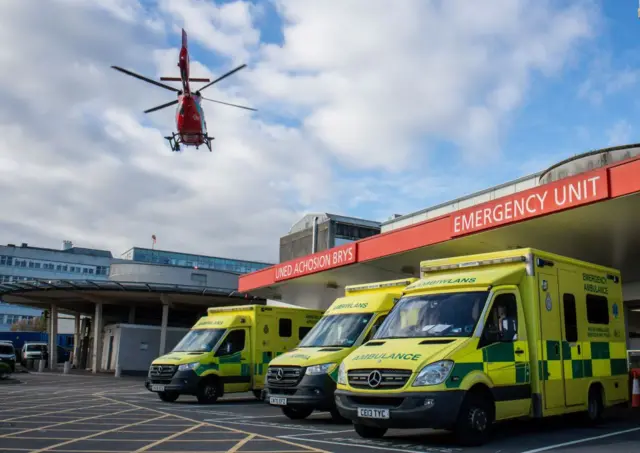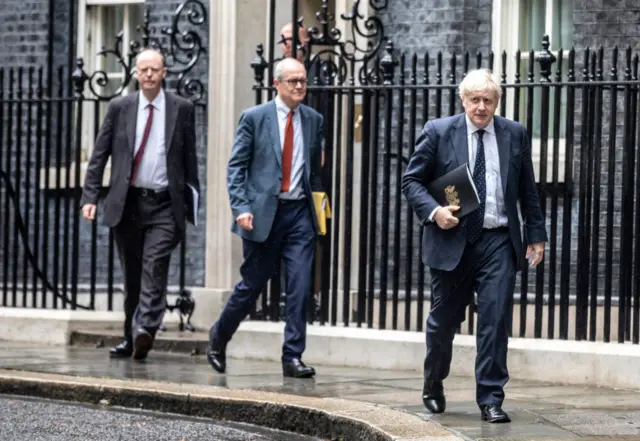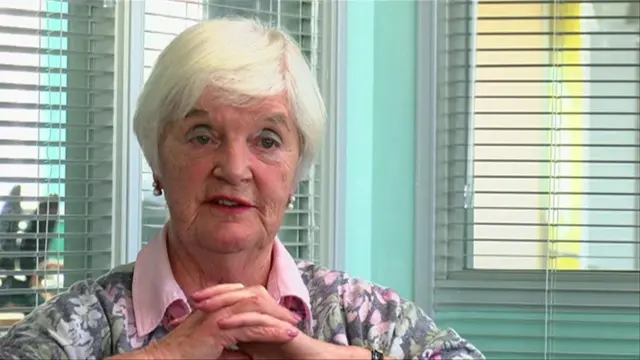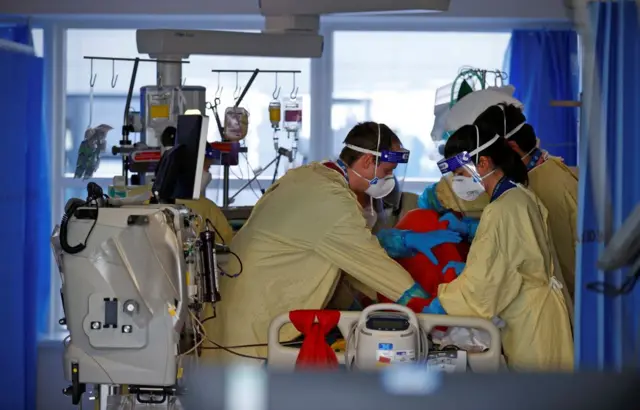Goodbye for nowpublished at 17:40 BST 12 October 2021
Thanks for joining us for our coverage of today's report on the successes and failings of the government's coronavirus pandemic response.
We're closing our live page now but will be back with more Covid news tomorrow.
Today's updates were written by George Bowden, Jennifer Meierhans, Joseph Lee and Mary O'Connor and the page was edited by Becky Morton and Chris Clayton.
We hope you have a good evening.
